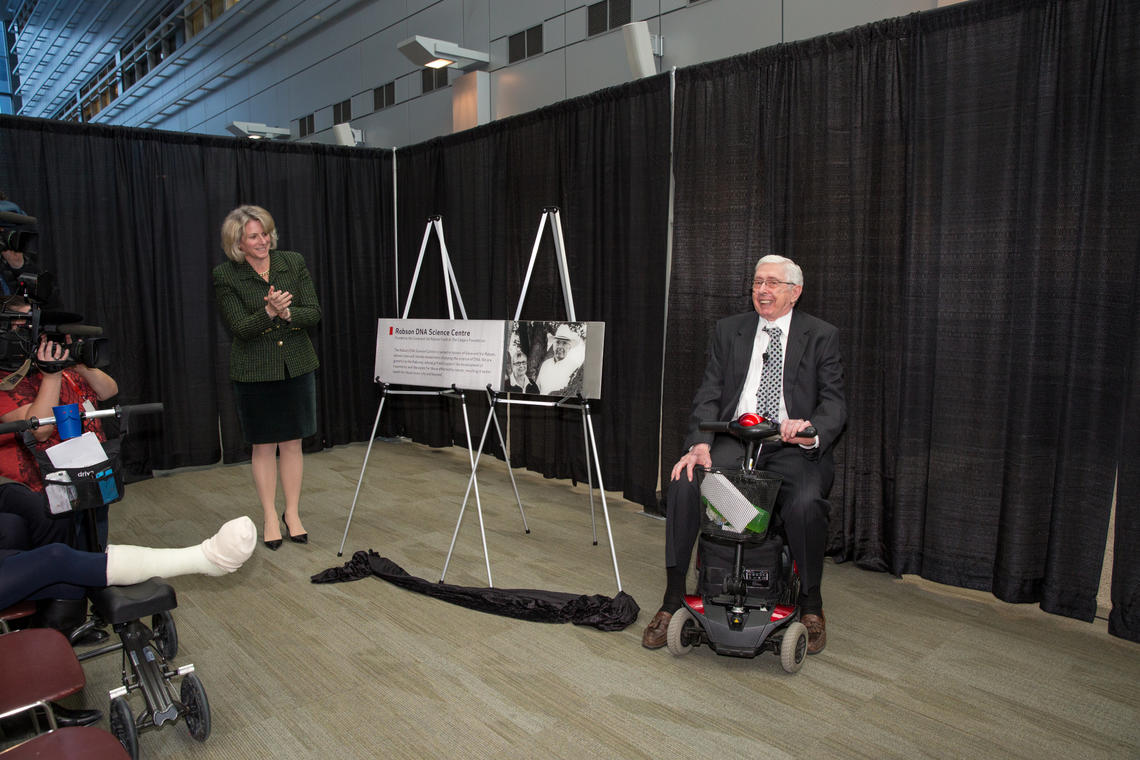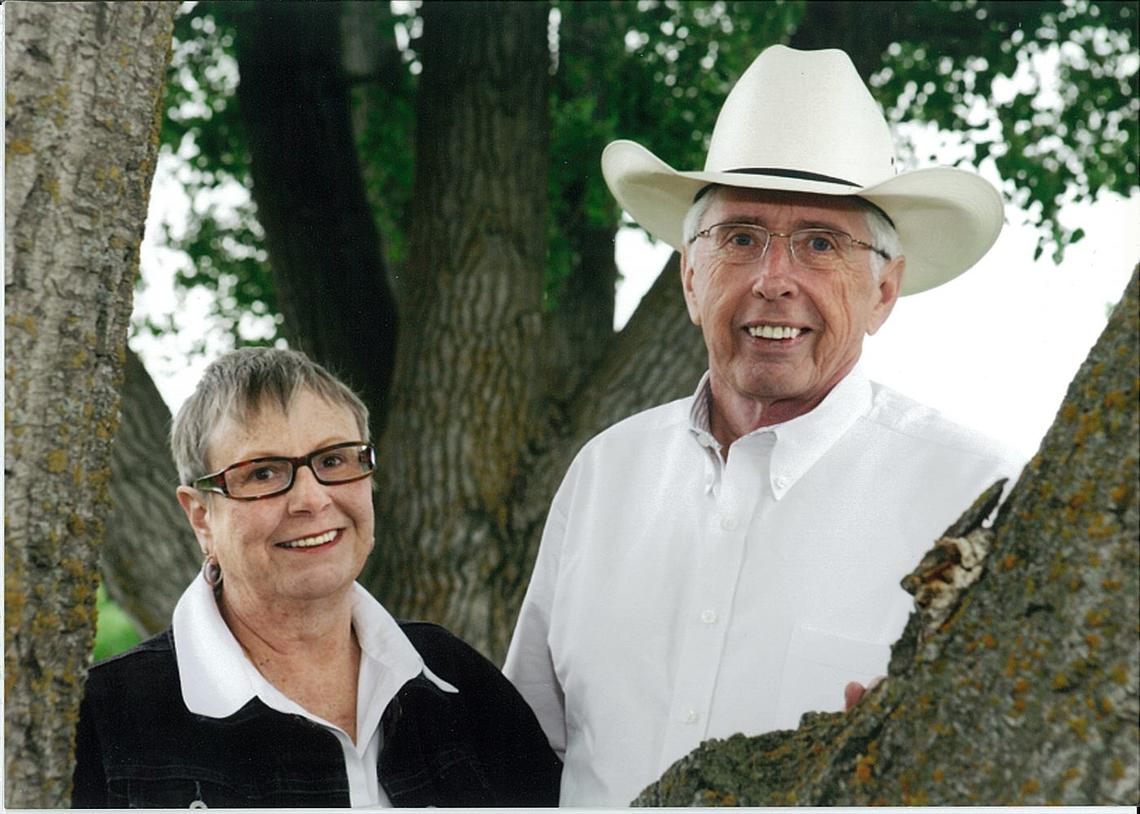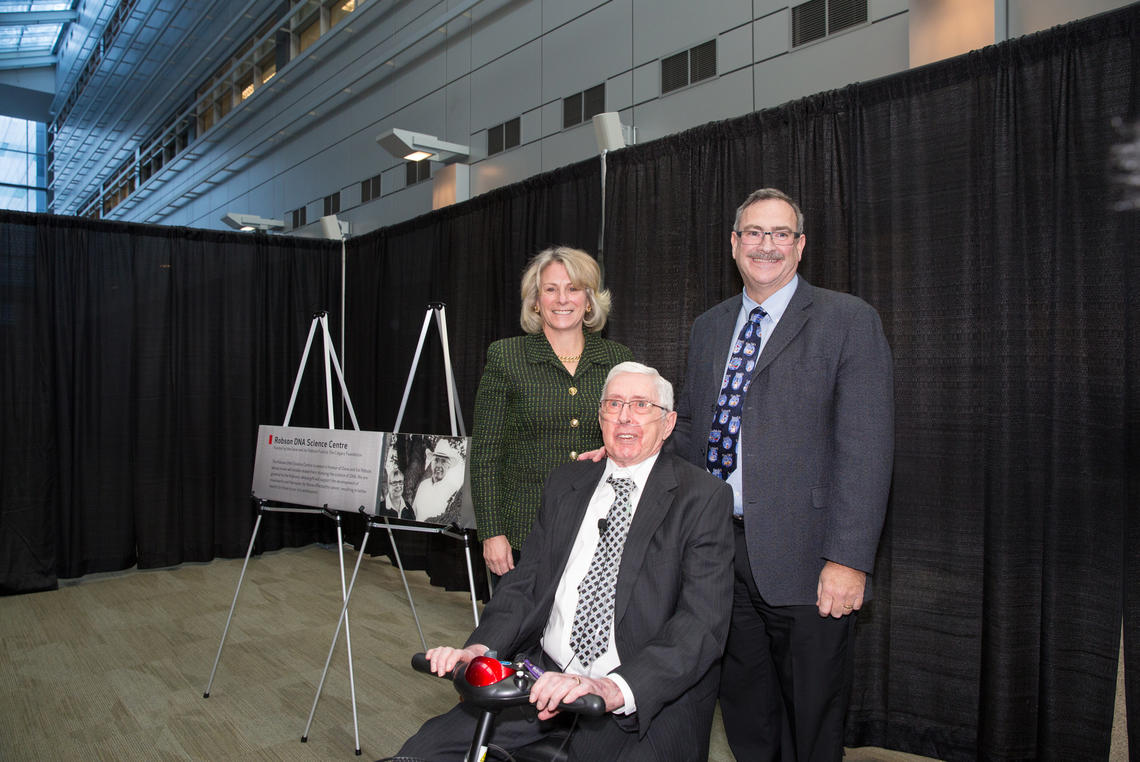
President Elizabeth Cannon and donor Dave Robson unveil a plaque for the Robson DNA Science Centre.
Riley Brandt, University of Calgary
Dec. 3, 2014

President Elizabeth Cannon and donor Dave Robson unveil a plaque for the Robson DNA Science Centre.
Riley Brandt, University of Calgary
The University of Calgary will study how cells detect and repair DNA damage, using this research to reduce cancer rates and improve treatments for cancer patients. The research will take place in the newly created Robson DNA Science Centre.
The centre was made possible by a $10-million gift from Dave Robson — through the Dave and Val Robson Fund at The Calgary Foundation — to the Southern Alberta Cancer Research Centre (SACRI) at the Cumming School of Medicine.
“This gift, coming from a highly respected community leader and friend of the University of Calgary, will allow the Cumming School of Medicine to build on its strength in DNA research by recruiting top talent,” says President Elizabeth Cannon. “The Robson DNA Science Centre will provide critically important basic research for the future of cancer treatment in southern Alberta.”

The Robson DNA Science Centre was made possible by a $10-million gift from Dave Robson.
Gift made in honour of donor’s late wife
Dave Robson, an award-winning Calgary businessman, made the gift in honour of his late wife, Val, who passed away in May 2014 from myelodysplastic syndrome — a rare cancer that affects bone marrow. The Robson DNA Science Centre will advance the understanding of DNA stability and repair, translating this knowledge into innovative cancer prevention strategies.
“Val and I wanted to do something meaningful, something that would make a difference to people who had been diagnosed with cancer, just like she had,” says Robson. “The importance of research can’t be overstated — the scientists in the Robson DNA Science Centre are doing life-saving research that will help improve the lives of Canadians in years to come.”
Robson worked with The Calgary Foundation to make his gift. The foundation was able to guide Robson toward the project. “The Calgary Foundation discovered what Dave Robson cared deeply about and brought Dr. Greg Cairncross, the director of SACRI, and Dave together. The rest is history,” says Eva Friesen, president and CEO, The Calgary Foundation.
In his business life, Robson was successful because he concentrated on the fundamentals. For this reason, he was attracted to the opportunity to honour his wife by investing in fundamental cancer research.

President Cannon with Dave Robson and Dr. Jon Meddings, dean of the Cumming School of Medicine.
Riley Brandt, University of Calgary
DNA mistakes can accumulate, setting stage for cancer
All cancers have one thing in common: a mistake in the DNA. DNA errors occur commonly in human cells, but are quickly repaired. However, sometimes mistakes in DNA accumulate, overwhelming the capacity of the cell to repair its DNA, thus setting the stage for cancer.
The aging process, and repeated exposure to toxins such as tobacco, asbestos, radon gas and UV light, are the usual causes of multiple errors in DNA. But occasionally, the DNA repair machinery itself is faulty, often because of an inherited weakness in repair capacity; DNA errors accumulate for this reason. Inherited weaknesses in DNA repair are one of the major causes of cancers that run in families, such as those of the breast and colon. The core group of DNA scientists will contribute to cancer prevention by studying how cells protect and repair DNA.
One in every two men in Alberta, and one in three women, will develop cancer in their lifetime. Among Albertans affected by cancer, one in four will die from the disease. By 2030, as a result of population growth and aging, it is estimated there will be 27,000 new cancer cases each year in the province. The Robson gift will contribute to Alberta’s cancer strategy: to prevent as many cancers as possible.